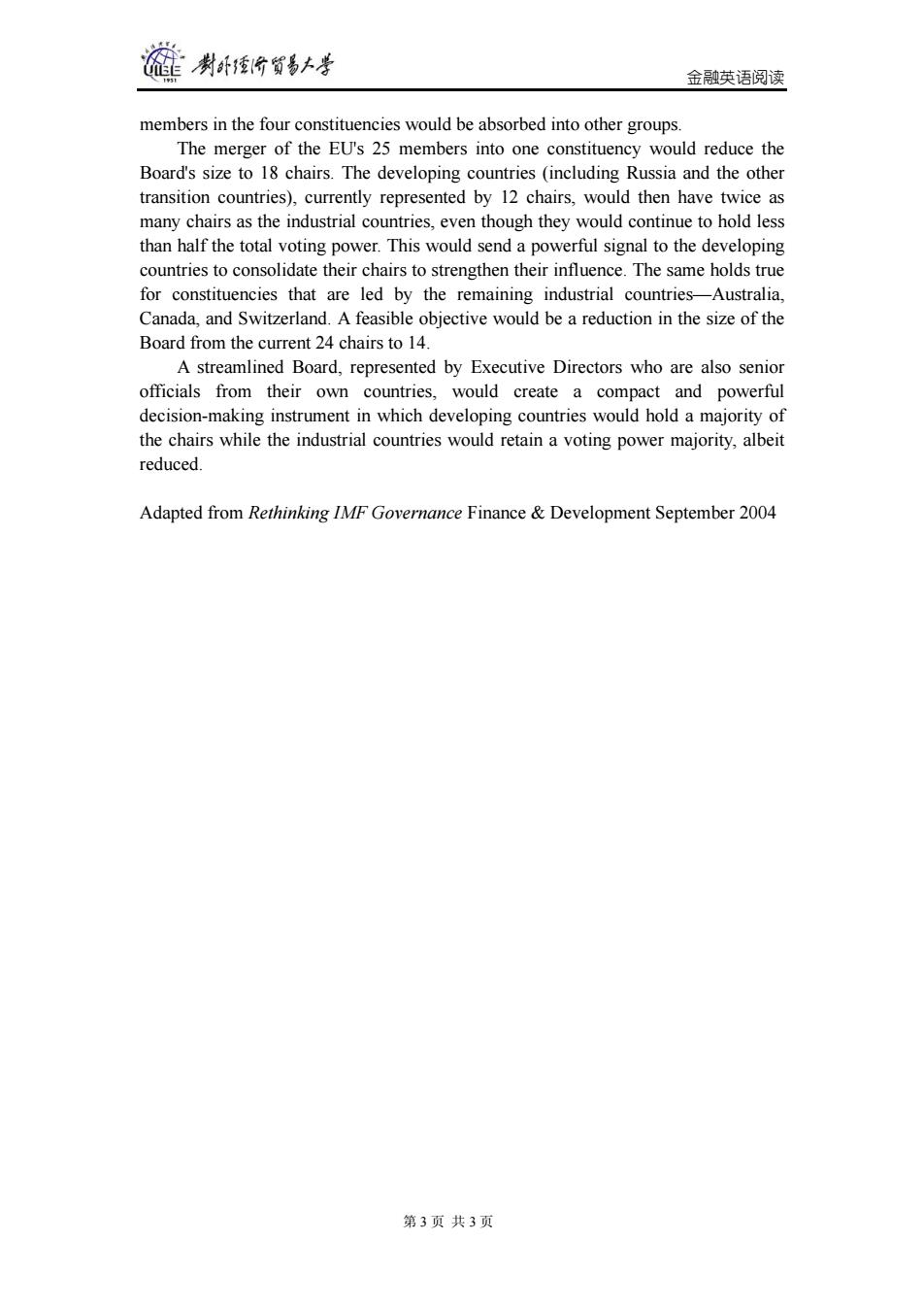正在加载图片...

莲 制卧台贸易上兰 金融英语阅读 members in the four constituencies would be absorbed into other groups. The merger of the EU's 25 members into one constituency would reduce the Board's size to 18 chairs.The developing countries (including Russia and the other transition countries),currently represented by 12 chairs,would then have twice as many chairs as the industrial countries,even though they would continue to hold less than half the total voting power.This would send a powerful signal to the developing countries to consolidate their chairs to strengthen their influence.The same holds true for constituencies that are led by the remaining industrial countries-Australia, Canada,and Switzerland.A feasible objective would be a reduction in the size of the Board from the current 24 chairs to 14. A streamlined Board,represented by Executive Directors who are also senior officials from their own countries,would create a compact and powerful decision-making instrument in which developing countries would hold a majority of the chairs while the industrial countries would retain a voting power majority,albeit reduced. Adapted from Rethinking IMF Governance Finance Development September 2004 第3页共3页金融英语阅读 members in the four constituencies would be absorbed into other groups. The merger of the EU's 25 members into one constituency would reduce the Board's size to 18 chairs. The developing countries (including Russia and the other transition countries), currently represented by 12 chairs, would then have twice as many chairs as the industrial countries, even though they would continue to hold less than half the total voting power. This would send a powerful signal to the developing countries to consolidate their chairs to strengthen their influence. The same holds true for constituencies that are led by the remaining industrial countries—Australia, Canada, and Switzerland. A feasible objective would be a reduction in the size of the Board from the current 24 chairs to 14. A streamlined Board, represented by Executive Directors who are also senior officials from their own countries, would create a compact and powerful decision-making instrument in which developing countries would hold a majority of the chairs while the industrial countries would retain a voting power majority, albeit reduced. Adapted from Rethinking IMF Governance Finance & Development September 2004 第 3 页 共 3 页